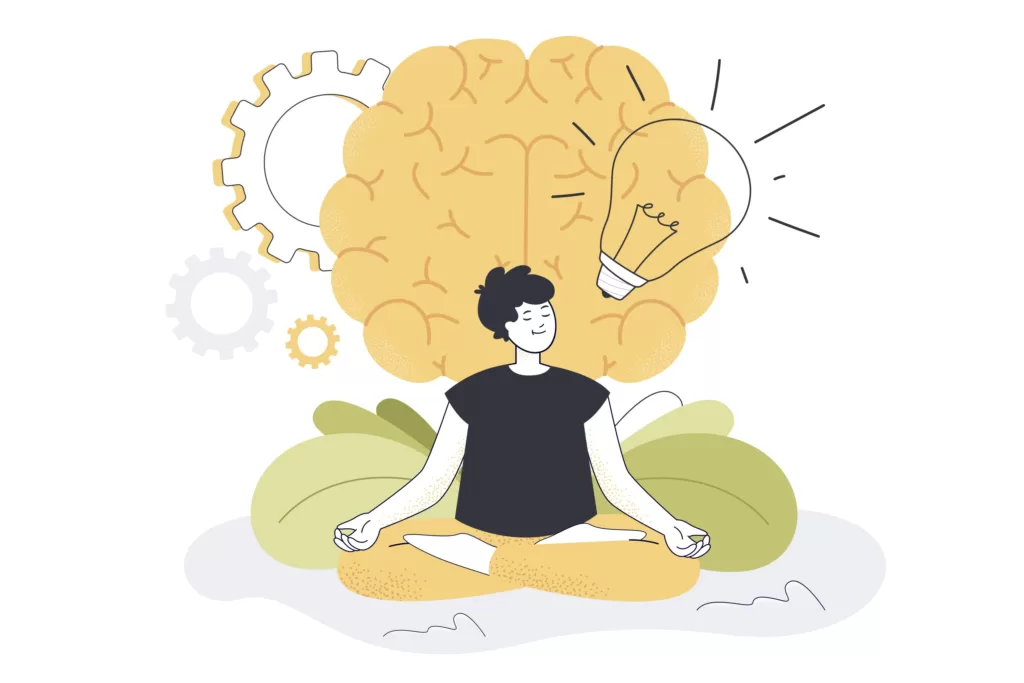Why Meditation Should Be a Part of Your Daily Routine
Introduction
Meditation is a practice that has been around for centuries and has gained popularity in recent years. It offers numerous benefits for both the mind and the body, making it an essential part of a daily routine. Whether you are a beginner or an experienced practitioner, incorporating meditation into your day can have a profound impact on your overall well-being. In this article, we will explore the basics of meditation, the science behind it, and how you can make it a regular part of your life.

Understanding the Basics of Meditation
What is Meditation?
Meditation is a technique that involves training the mind to focus and redirect thoughts. It is often practiced by sitting or lying down in a quiet space and focusing on the breath or a specific object or phrase. The goal of meditation is to achieve a state of mental clarity and emotional calmness.
When practicing meditation, individuals aim to cultivate a sense of inner peace and tranquility. By training the mind to be present and aware, meditation helps individuals become more attuned to their thoughts and emotions. Through regular practice, meditation can have a profound impact on one’s overall well-being.

Different Types of Meditation Practices
There are various types of meditation practices, each with its own unique features and benefits. Some popular forms include:
- Mindfulness Meditation: This practice involves paying attention to the present moment, without judgment or analysis. It helps cultivate awareness and acceptance of one’s thoughts and feelings.
- Transcendental Meditation: This technique involves silently repeating a mantra, which is a specific word or phrase, to achieve a state of deep relaxation and tranquility.
- Loving-Kindness Meditation: This practice focuses on developing feelings of compassion and love towards oneself and others. It involves reciting specific phrases or visualizing sending positive energy to others.
These are just a few examples of the many meditation techniques available. The key is to find a practice that resonates with you and aligns with your personal goals and preferences.
The Science Behing Meditation
Meditation is an ancient practice that has gained significant attention in recent years due to its potential positive effects on the brain and physical health. Scientific studies have shown that regular meditation practice can lead to structural and functional changes in various regions of the brain, ultimately enhancing cognitive abilities and overall well-being.
One study conducted among medical students demonstrated the benefits of using the Headspace app for approximately 10 minutes daily. According to the study, 53% of the students reported seeing value in meditation and an improvement in their learning abilities. The most significant finding of the study was the students’ agreement that mindfulness meditation could bring moderate to significant benefits to their future patients.
Another study by Julia C. Brasso at New York University examined the effects of meditation on healthy adults between the ages of 18 and 45 who had no prior meditation experience. The study found that just 13 minutes of daily guided meditation for 8 weeks resulted in decreased negative mood, reduced stress levels, increased alertness to the external environment, and improved information processing abilities.

Mental and Emotional Benefits of Meditation
Meditation is a practice that has been embraced by cultures around the world for centuries. It offers a multitude of benefits, not only for the physical body but also for mental and emotional well-being.
One of the most well-known benefits of meditation is its ability to reduce stress. When we meditate, we enter a state of deep relaxation, allowing our bodies and minds to rest and rejuvenate. By focusing our attention on the present moment and letting go of racing thoughts, we create a space of calm within ourselves. This state of relaxation not only helps us feel more at ease but also promotes a sense of resilience when faced with stressful situations.
In addition to stress reduction, regular meditation practice can enhance emotional well-being. It has been shown to decrease symptoms of anxiety and depression, improve self-esteem, and enhance overall emotional resilience. Through meditation, we become more attuned to our emotional states, recognizing when we are feeling overwhelmed, anxious, or sad. This heightened awareness empowers us to take proactive steps to address our emotional needs and cultivate a greater sense of compassion and empathy towards ourselves and others.
If you have doubts or reservations about meditation and think it’s not for you, I encourage you to give it a try.

Incorporating Meditation into Your Daily Routine
Starting a meditation practice may seem daunting at first, but with patience and consistency, you can experience its transformative effects. Find a quiet space, choose a meditation technique that resonates with you, and set aside a few minutes each day for meditation. Here are some tips for incorporating meditation into your daily routine:
- Find the Right Time and Place: Choose a time when you are least likely to be interrupted and find a quiet space where you can sit comfortably. Creating a dedicated meditation space can help signal to your mind that it’s time for practice.
- Start with Short Sessions: If you’re new to meditation, begin with just a few minutes each day and gradually increase the duration as you become more comfortable. Starting small can make the practice feel more manageable and sustainable.
- Focus on Your Breath: Pay attention to the sensation of your breath entering and leaving your body. Whenever your mind wanders, gently bring your attention back to your breath. This simple technique can help anchor your mind and bring you back to the present moment.
- Be Patient with Yourself: Meditation is a skill that takes time to develop. It’s normal for your mind to wander or feel busy, especially in the beginning. Be patient with yourself and approach your practice with a sense of curiosity and openness.
- Make It a Daily Habit: Consistency is key to experiencing the full benefits of meditation. Set aside a specific time each day for your practice and make it a non-negotiable part of your routine. Treat it as a sacred time for self-care and inner reflection.
- Explore Different Techniques: There are various meditation techniques to choose from, as mentioned earlier. Explore different styles to find the one that resonates with you the most. You may even find it beneficial to combine different practices depending on your needs and preferences.
- Use Guided Meditations: If staying focused is challenging or you need guidance, consider using apps like Headspace for guided meditation sessions. These apps offer various purposes, from stress reduction to improved sleep and self-compassion.

Conclusion
In conclusion, meditation offers a wealth of benefits for the mind, body, and spirit. By understanding the basics, delving into the science behind it, and incorporating it into your daily routine, you can experience the transformative power of meditation. Start small, be consistent, and watch as meditation becomes an integral part of your life, bringing you peace, focus, and a greater sense of well-being.
As you continue your journey of self-improvement, consider exploring my related blog article on “Boost Self-Confidence: Practical Tips for Success in Life and Work.” Combining the practice of meditation with strategies to boost self-confidence can lead to even more profound personal and professional growth. Embrace these powerful tools to unlock your full potential and thrive in all aspects of life. Remember, the path to self-discovery and empowerment begins with a single step, and both meditation and self-confidence are essential ingredients in the recipe for a fulfilling and successful life.






One Comment